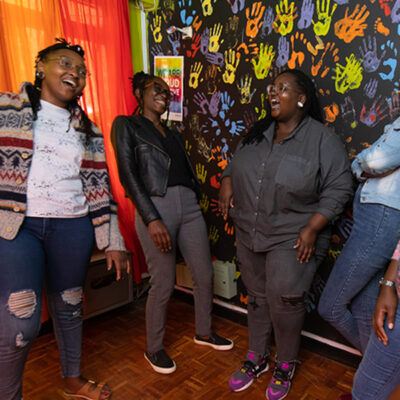When I woke up this morning to the amazing news that the Anti-Homosexuality Bill has been killed (at least for now), I started thinking about what made it possible and what lessons we might extrapolate for the human rights work that AJWS supports all around the world.
First, activists in Uganda built a remarkable coalition of organizations working in different sectors—human rights, HIV/AIDS, women’s rights, refugee rights, labor rights, LGBTI rights, and the list goes on. The notion that LGBTI Ugandans deserve the same rights as all Ugandans was not an uncontested idea in Ugandan civil society in October 2009 when the bill was first introduced. Building a coalition was no easy feat. But 28 organizations came together on the premise that LGBTI rights are not special, different or extra: they are human rights. The victory in Uganda would not have been possible if LGBTI activists had been the only voices opposing the bill. Speaking from multiple perspectives, the Civil Society Coalition on Human Rights and Constitutional Law made the argument that the bill was unconstitutional, violated best practices in public health, and undermined governance and civil liberties. Our win today underlines the importance of building social movements that transcend narrow identity-based rights claims and can gain new allies as a result. Our partners in Uganda have shown us what that can look like.
In addition to local organizing, there’s no doubt that international activism played a critical role in killing the bill. In just the past few days, e-petitions from organizations like AllOut gathered millions of signatures, and domestic pressure in the U.S. and Europe encouraged dozens of legislators and government representatives to speak out against the legislation. What’s been encouraging to me in the last week—in contrast to past moments during the nearly two-year fight to kill the bill—is the degree to which international actors took their lead from Ugandan activists. The Civil Society Coalition offered strategic guidance to advocacy organizations in the West, providing context by sharing its broader critique of the human rights crisis in Uganda, and helping us avoid playing into the government’s political tactic of using the bill as a distraction from its crackdown on peaceful protest. AJWS believes that grassroots communities are best placed to envision, articulate and carry forward their own visions and strategies for social change. In the struggle against the Anti-Homosexuality Bill, it has been encouraging to see more and more international advocates respect the expertise and leadership of local activists in their own struggles.
There’s lots more to say about what got us to today, and there’s no question that the fight for human rights of LGBTI people in Uganda is far from over. But victories are few and far between. This one is certainly worth savoring.

